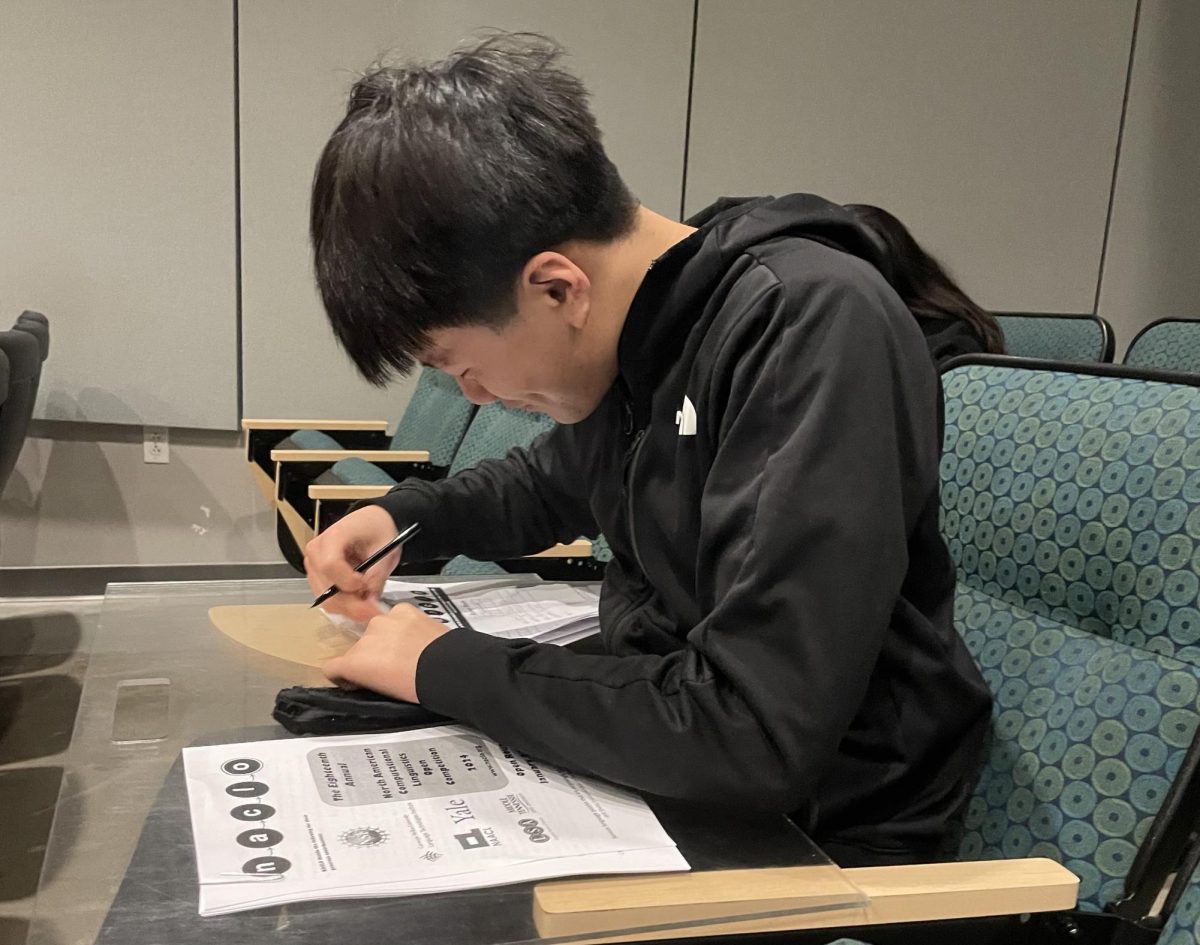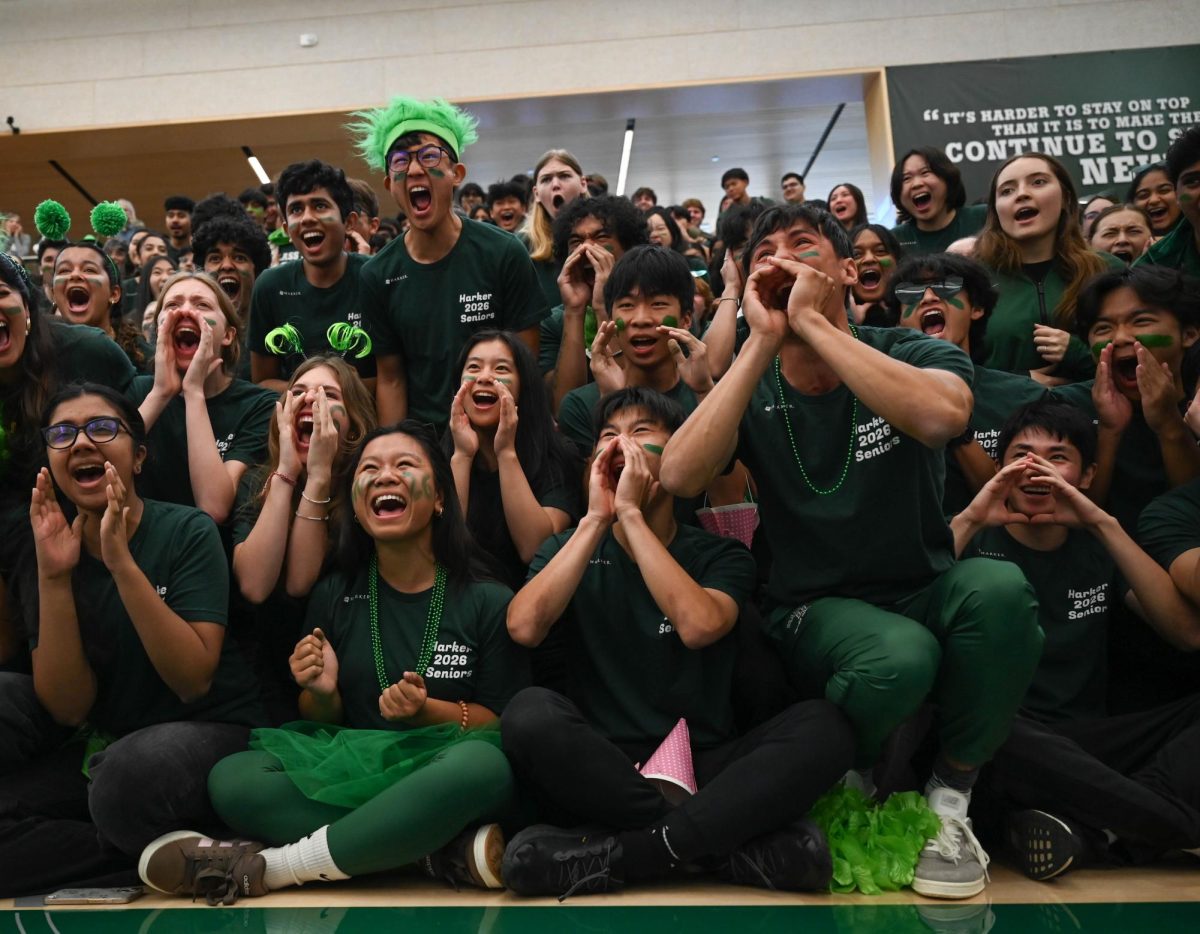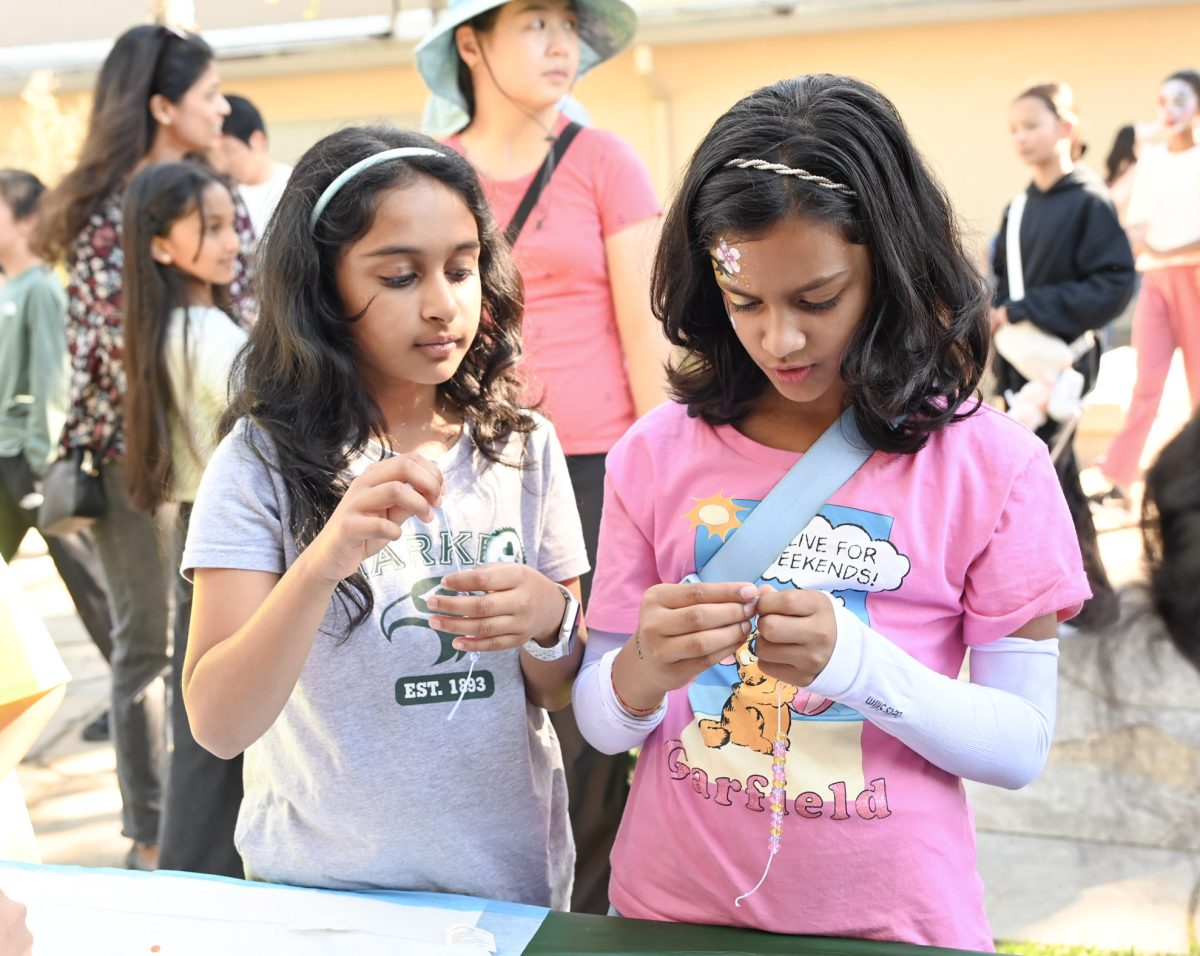Twenty-nine students participated in the North American Computational Linguistics Open Competition in the Nichols Auditorium from 9 a.m. to 12 p.m. on Jan. 25.
The three-hour exam, which included eight questions of varying difficulty, tested students on various linguistics topics including decoding writing systems, translating words into English and figuring out numbers in foreign languages based on arithmetic equations. Students who achieve a score in approximately the 90th percentile will advance to the Invitational Round on March 14, which determines who will represent the United States in the International Linguistics Olympiad in July.
Samuel Tong (10), who participated in NACLO for the first time this year, was surprised at the difficulty of the questions but nevertheless enjoyed the logical aspect of the test.
“I decided to take [NACLO] because I’d never tried linguistics problems before,” Samuel said. “It was a fun experience even though the questions were a little challenging, and I got the opportunity to do some critical thinking. I’m looking forward to doing it next year, and hopefully, I’ll have more experience with those sorts of problems then.”
Before the competition, the Language and Linguistics Club held a review session after school on Jan. 18 in French teacher and LALC adviser Galina Tchourilova’s classroom, going over past problems and common pitfalls and answering questions. LALC lecturer Audrey Cheng (11) discussed the club’s role in helping students prepare for the competition.
“LALC has always done a prep session every year in the week or weeks before NACLO,” they said. “We use a set of slides and go through the different types of problems and make sure [participants] are ready for NACLO. It’s the same every year, but it’s also nice to see them enjoy learning about linguistics and other languages.”
The LALC was founded in 2010, and Harker has hosted NACLO for several years since. In 2022, Rishab Parthasarthy (‘22) received a silver medal at IOL held in the Isle of Man after qualifying to be a member of the USA Red team. Tchourilova became LALC’s adviser in the fall of 2022, and she quickly recognized that the competition helped open up new perspectives for students, who often only learn languages as a requirement.
“As a language teacher, I know that everybody takes a language, but to me it gives them an opportunity to compare other languages and see that learning languages is not only about conjugation and memorization,” she said. “They can see how different languages work, how they are connected and the ways of thinking in different cultures, which are all fascinating to someone who hasn’t seen them before.”
Tchourilova also noted NACLO’s similarity to general logic puzzles, recalling the number of students who expressed interest in participating and exploring linguistics for the first time at an LALC review session.
“I was originally interested in NACLO because it is something that does not require a lot of previous knowledge,” Tchourilova said. “It’s just about how your mind works, and if you like any kind of puzzles, I think you will be fascinated by it. I was just so surprised at the first meeting by how many students would come, and we were so excited trying to solve the problems.”
LALC president Harrison Chen (11) echoed Tchourilova’s words, emphasizing NACLO’s importance as a competition that any student can participate in without prior knowledge while also utilizing their critical thinking skills outside of the classroom.
“I think NACLO’s something quite unique, but it’s also only a very small introduction into the world of linguistics from a high school perspective,” Harrison said. “Most high schoolers just never hear about linguistics until college. And it’s not specifically STEM or what Harker students would usually think of STEM, but it uses a lot of the same thinking skills like working through puzzles and using logic.”


















![“[Building nerf blasters] became this outlet of creativity for me that hasn't been matched by anything else. The process [of] making a build complete to your desire is such a painstakingly difficult process, but I've had to learn from [the skills needed from] soldering to proper painting. There's so many different options for everything, if you think about it, it exists. The best part is [that] if it doesn't exist, you can build it yourself," Ishaan Parate said.](https://harkeraquila.com/wp-content/uploads/2022/08/DSC_8149-900x604.jpg)




![“When I came into high school, I was ready to be a follower. But DECA was a game changer for me. It helped me overcome my fear of public speaking, and it's played such a major role in who I've become today. To be able to successfully lead a chapter of 150 students, an officer team and be one of the upperclassmen I once really admired is something I'm [really] proud of,” Anvitha Tummala ('21) said.](https://harkeraquila.com/wp-content/uploads/2021/07/Screen-Shot-2021-07-25-at-9.50.05-AM-900x594.png)







![“I think getting up in the morning and having a sense of purpose [is exciting]. I think without a certain amount of drive, life is kind of obsolete and mundane, and I think having that every single day is what makes each day unique and kind of makes life exciting,” Neymika Jain (12) said.](https://harkeraquila.com/wp-content/uploads/2017/06/Screen-Shot-2017-06-03-at-4.54.16-PM.png)








![“My slogan is ‘slow feet, don’t eat, and I’m hungry.’ You need to run fast to get where you are–you aren't going to get those championships if you aren't fast,” Angel Cervantes (12) said. “I want to do well in school on my tests and in track and win championships for my team. I live by that, [and] I can do that anywhere: in the classroom or on the field.”](https://harkeraquila.com/wp-content/uploads/2018/06/DSC5146-900x601.jpg)
![“[Volleyball has] taught me how to fall correctly, and another thing it taught is that you don’t have to be the best at something to be good at it. If you just hit the ball in a smart way, then it still scores points and you’re good at it. You could be a background player and still make a much bigger impact on the team than you would think,” Anya Gert (’20) said.](https://harkeraquila.com/wp-content/uploads/2020/06/AnnaGert_JinTuan_HoHPhotoEdited-600x900.jpeg)

![“I'm not nearly there yet, but [my confidence has] definitely been getting better since I was pretty shy and timid coming into Harker my freshman year. I know that there's a lot of people that are really confident in what they do, and I really admire them. Everyone's so driven and that has really pushed me to kind of try to find my own place in high school and be more confident,” Alyssa Huang (’20) said.](https://harkeraquila.com/wp-content/uploads/2020/06/AlyssaHuang_EmilyChen_HoHPhoto-900x749.jpeg)







![LALC Vice President of External Affairs Raeanne Li (11) explains the International Phonetic Alphabet to attendees. "We decided to have more fun topics this year instead of just talking about the same things every year so our older members can also [enjoy],” Raeanne said.](https://harkeraquila.com/wp-content/uploads/2025/10/DSC_4627-1200x795.jpg)








